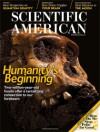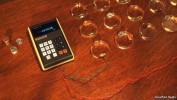Argentina is nationalising its science output, following last month’s nationalisation of energy company YPF. Only this time, the benefits should be international. On 23 May the house of representatives, Argentina’s lower house, approved a bill that would require the results of all scientific research conducted at the Argentina’s National System for Science and Research or by researchers funded by it to be made freely available in an online depository. Continue reading Argentine legislators approve open access law
All posts by LL
UK drug development
A £250-million (US$397-million) investment in venture capital for translational research in the United Kingdom could create jobs. The European Investment Fund in Luxembourg City and Cancer Research Technology (CRT), the commercial arm of the London-based charity Cancer Research UK, are jointly investing £50 million in the development of potential cancer drugs. A separate £200-million initiative by the Wellcome Trust in London will support early-stage biotechnology firms. Keith Blundy, chief executive of CRT, says that experts in drug development should find opportunities as the funding helps to take more drug candidates through to clinical trials.
Blue Bacteria in Bloom
 On their own, cyanobacteria are tiny photosynthetic organisms floating in the sea. But when they join forces, linking together into chains and then mats by the millions, they can become a threat. Before long, the bacteria change the color of the sea’s surface and even soften the wind-tossed chop. One study of cyanobacteria, also known as blue-green algae, although they are not algae, predicted that rising sea temperatures could help the already widespread creatures expand their territory by more than 10 percent. Now researchers are asking whether mats of cyanobacteria might themselves affect local sea temperatures, thus creating a powerful feedback loop. Continue reading Blue Bacteria in Bloom
On their own, cyanobacteria are tiny photosynthetic organisms floating in the sea. But when they join forces, linking together into chains and then mats by the millions, they can become a threat. Before long, the bacteria change the color of the sea’s surface and even soften the wind-tossed chop. One study of cyanobacteria, also known as blue-green algae, although they are not algae, predicted that rising sea temperatures could help the already widespread creatures expand their territory by more than 10 percent. Now researchers are asking whether mats of cyanobacteria might themselves affect local sea temperatures, thus creating a powerful feedback loop. Continue reading Blue Bacteria in Bloom
The power of money
 HIGH-SPEED currency trading uses oodles of computing power to exploit short-lived price differences in international foreign-exchange markets. Jonathon Keats proposes an alternative: exploit the electrical differences between currencies to power a low-speed computer. In an exhibit which opens on April 12th at the Rockefeller Centre in New York Mr Keats, a concept artist (or, as he likes to call himself, an experimental philosopher), introduces the notion “electro-chemical arbitrage”. An engineer might call it a battery.
HIGH-SPEED currency trading uses oodles of computing power to exploit short-lived price differences in international foreign-exchange markets. Jonathon Keats proposes an alternative: exploit the electrical differences between currencies to power a low-speed computer. In an exhibit which opens on April 12th at the Rockefeller Centre in New York Mr Keats, a concept artist (or, as he likes to call himself, an experimental philosopher), introduces the notion “electro-chemical arbitrage”. An engineer might call it a battery.